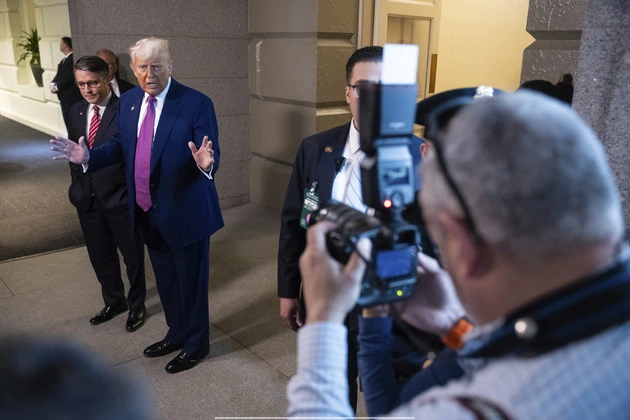
Understanding the Political Dynamics
President Donald Trump and his administration are facing a unique challenge in their efforts to reform Medicaid, a crucial health program for low-income individuals.
Trump’s reluctance to entertain deeper cuts to Medicaid stems from his political acumen and the lessons learned from the failed attempts to repeal Obamacare in 2017. Unlike some conservative lawmakers, Trump is wary of the potential backlash from voters if significant reductions are made to Medicaid benefits.
Trump’s Firm Stance on Medicaid
Despite pressure from conservative hardliners, Trump remains steadfast in his position to shield core elements of Medicaid. This shift in approach reflects a strategic move within the White House to avoid a contentious healthcare battle that could jeopardize the administration’s broader policy agenda.
Trump’s decision to resist deeper cuts to Medicaid underscores his evolving perspective on healthcare policy and the need to prioritize political viability over ideological purity.
Implications for Healthcare Legislation
The ongoing debate surrounding Medicaid reform highlights the complexities of healthcare policy and the divergent views within the Republican Party. While Trump aims to maintain Medicaid’s popularity among voters, the proposed changes in eligibility criteria and coverage restrictions have sparked concerns about the program’s future.
As the administration navigates the intricacies of healthcare reform, the focus on Medicaid serves as a litmus test for the administration’s ability to deliver on its campaign promises while balancing the practical realities of governing.
Looking Ahead
Trump’s approach to Medicaid underscores a strategic shift in healthcare policy, emphasizing incremental changes over sweeping reforms. While critics argue that the proposed modifications may leave vulnerable populations underserved, supporters view them as necessary steps to enhance program efficiency.
As the debate over Medicaid continues, the administration faces the challenge of reconciling competing interests within the party and addressing the broader implications of healthcare policy on the American public.











